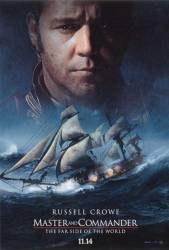
Question: Will someone explain to me navigation. I have never heard of "Sou Sou West" or "Sou East by East."
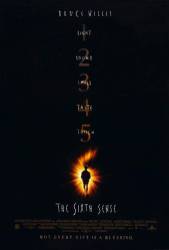
Question: Through most of the film Malcolm is dead. All the other ghosts still have scars from how they died but why doesn't Malcolm have his mark which should be a bullet wound?
Answer: Because as Cole tells us in the middle of the movie, "They only see what they want to see." The movie shows us Malcolm as he perceives himself. He can't actually put on an overcoat, or change clothes. He sees what he expects to see. He goes outside in the cold to visit Cole, so he sees himself wearing an overcoat. He doesn't know he is dead - he doesn't see his wound. To preserve this misdirection throughout the movie, we are shown Malcolm as he sees himself.
Actually, we do see Malcolm and Cole sees him. The entry wound in his abdomen is tiny, and the large, obvious exit wound is on Malcolm's back, which we never see.
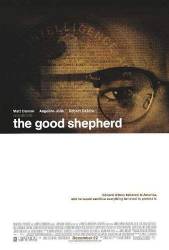
Question: What did the term, "tying your shoe" mean?
Chosen answer: It means you need to avoid getting caught in the crossfire. Originally, terms like "tying your shoe" or "pulling your socks up" meant ducking to avoid flying bullets. In a more generic sense though, it needn't be about gun violence per se. Just that you don't want to be on the receiving end of violence meant for someone else. In the movie, this was a way of telling Edward that if he could not defuse the situation, then others would be forced to harm the professor. Here, they weren't actually going to put Edward in harm's way. But if he failed to change the professor, then violence against the professor was forthcoming.
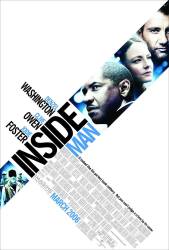
Question: After the robbery and once the dust settled (business was back-to-normal at the bank, etc.) why did the bank president not immediately go to open the safety deposit box and see what happened to its contents? He knew it was the target of the robbery. Reason would dictate that one of the first things he would have done would be to open the box and see what was there... Not leave it to the NYPD to open it and discover a mostly empty box except for the big ring, chewing gum and note.
Answer: The aforementioned answer fails to keep in mind he is the owner of the bank and could've have done this hours before the bank was opened and or hours after the bank was opened. Dalton spent 3 days behind the wall. Mr Case had a special fixer, and she had the mayor in her pocket. It is a reasonable assumption that a billionaire like Aruthur Case would be able to have the contents of his safety deposit box removed with little to no problem. One way is "yes Mr. Mayor I will be giving you a blank check for your reelection campaign." The issue is this was a major plot hole that almost ruined a otherwise great and well thought out movie.
Answer: Arthur Case did not want anyone to know about the safe deposit box or what was in it. In fact, the box's number had been left off the bank records. The police did not immediately know if anything had been stolen during the robbery. Case going to the bank to check on the box, would only have drawn attention to it. The contents, the diamonds, were a link to Case's criminal Nazi past that he wanted kept hidden. It was only by chance that Detective Frazier discovered the box and the clues that had been left inside it by Dalton Russell.
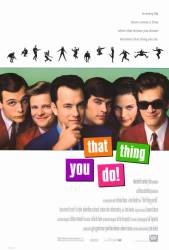
Question: Are the characters in this movie based on actual people? Is it a true story or a fictional story that was entirely possible?
Answer: The movie was written by Tom Hanks and some what reflects the music industry during that time period. It is not about a real band, but shows how a lot of bands were treated at the time and how quickly you can rise and how you can fall even faster.
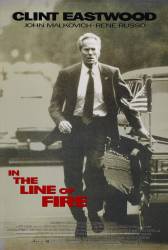
Question: After they search Leary's hotel room, they find a piece of paper that says "SW SKELLUM LA." We learn that the SW stands for Southwest (a bank he was using) and SKELLUM is a phone number. What does the LA mean?
Chosen answer: LA is short for Los Angeles, which refers to the city Leary attempts to assassinate the president in.
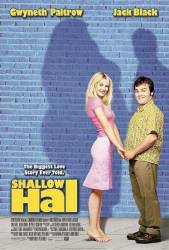
Question: In the scene where Hal, Rosemary, the cripled friend, and Nurse "Sourpuss" go out of town, Hal and his friend got to buy snacks leaving Rosemary and "Sourpuss" to talk. There is a scene where thy cut to the front of the car and Nurse "Sourpuss" is now good looking. So is that her real look and Hal only sees her as old and ugly?
Chosen answer: Yes. Just as Hal sees many unattractive and/or overweight women to be thin and beautiful due to their true personalities, he sees Nurse "Sourpuss" - who is a beautiful woman - to be old and ugly due to hers.
Answer: At that point Hal and his friend had already turned their backs and went to the store so Hal was not even looking at her.
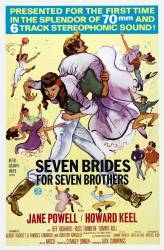
Question: When they are singing under a tree full of doves, it looks like they were tied to the tree branches. Is this true?
Answer: Yes it is true. They did this to prevent the birds from flying into the backdrops and becoming injured or killed.
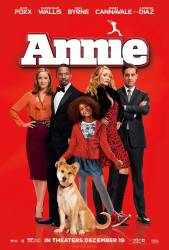
Answer: In earlier versions of the "Annie" story, she is orphaned when her parents are killed in a car accident. In the musical, they died in a fire. In the 2014 re-imagining, Annie lives in foster care after being abandoned by her family. Early on, she hopes to one day be reunited with them. We, the audience, never learn their whereabouts, nor whether they are alive or dead.
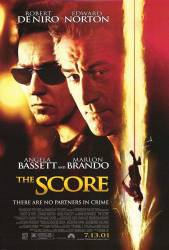
Question: Why does Norton lie and say that he "has company" and then make De Niro wait longer during the robbery? Sure, Norton double crosses him later, but wouldn't making his partner wait put both of them in danger of getting caught since it delays them and increases their chances of getting caught?
Answer: Norton already has an advance plan to prevent himself from getting caught. The delay is both to fluster DeNiro, and to prevent him from having enough time at the moment of the double-cross to come up with an alternate to handing over the prize without getting caught himself.
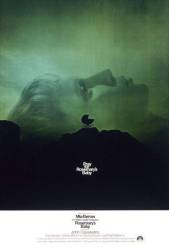
Question: When Rosemary gets into the Castavets right at the end, she walks past a man, and then the man says something. She then replies "Be quiet, you're still in [some location]" What was that about...?
Chosen answer: Roman Castavet is trying to get Rosemary's attention, and she says "Be quiet, you're in Dubrovnik, I can't hear you". That was in reference to the fact that Roman and Minnie were supposed to have gone to Majorca or Dubrovnik after she found out that Roman was supposedly dying (which was just a lie Rosemary was told so she wouldn't suspect them when her baby was taken). Roman and Minnie got in a cab and pretended to go to the airport, but never left town.
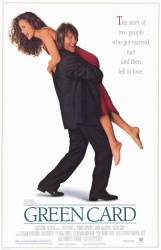
Question: When Georges is being deported back to France, why didn't Brontë go with him? They realised they were in love with each other plus there was nothing stopping her from going to France with him.
Answer: It's implied she will be coming with him when George says he will write to ask 'when are you coming cherie?' and the way they laugh and exchange rings. She just has to wrap up loose ends in NY then she'll be on her way to him.

Question: If the ship's artillery is only equipped with 5-inch starburst rounds (as stated more than once), how do they use the much larger guns to sink the submarine?
Answer: The smaller guns were only equipped with the Starburst rounds. The 16 Inch Cannons were still supplied with live ammo. None of the characters left to fight had experience with the 16 inch guns except for the Gunner's Mate, therefore none of them thought to use one of the 16 inch guns.
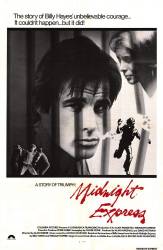
Question: What has ended up with Max? Billy promised to go back and release him, but we never see that happen, and no explanation is given for that in the Epilogue. Is Max a real figure? If he is, what has happened to him? Did he manage to escape, or did he die in prison?
Answer: Max WAS a real character, and a Dutchman in real life, rather than an English one as portrayed in the movie. He eventually got paroled and later treatment for a severe drug addiction he had too.
Answer: It's never stated what happened to Max. The film was a heavily fictionalized version of Billy Hayes' book, and the Max character appears to be fictional as well or at least a composite of other real-life imprisoned Westerners that Hayes met while in a Turkish prison.
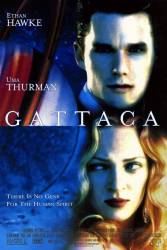
Question: In the scene where Vincent is just about to launch, the doctor testing him mentions his son. My brother seems to think that the doctor knows Vincent is not who he pretends to be because he is Jerome Morrow's father. Is there any evidence for this?
Answer: None whatsoever. The doctor seems to have worked out that Vincent is not who he seems to be from simple observational evidence. It's because of his son that he feels sympathy for Vincent and hasn't revealed that he's tricking the system.
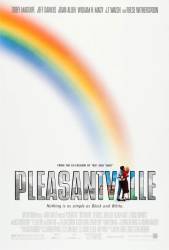
Question: Wouldn't David & Jennifer's mom be worried about the sudden disappearance of her daughter, seeing as how Jennifer stayed behind in Pleasantville rather than returning to the "real world"?
Answer: We don't see much of the "real world" after David returns other than his conversation with his mother. I am sure in time she would have been worried but there seem to be many unanswered questions which might make it not so simple.
Considering that a couple of days in Pleasantville turned out to be just an hour in the real world, it's possible Jennifer could spend 3-4 years in uni and cone back with it being just a weekend in the real world. David could just make up something in that period she's gone.
Actually if a couple of days is just an hour than 3-4 years is more than 2 weeks.
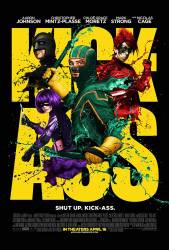
Question: Can someone give me Kick-Ass's speech to the three muggers at the diner, word for word?
Answer: Guy: "You'd rather die for some piece of shit that you don't even fucking know? Kick-Ass: "And three assholes, laying into one guy while everybody else watches, and you want to know what's wrong with me?! Yeah, I'd rather die, so bring it on!"
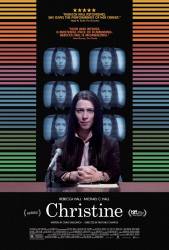

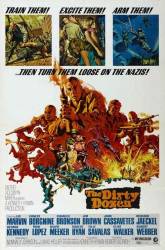
Answer: There are four major directions (North, South, East and West), four minor (North East, south east, south west and north west) and 16 sub directions. Among these are South South West and South east by East. South South West is between South West and South and South East by East is between south east and east.
SexyIrishLeprechaun